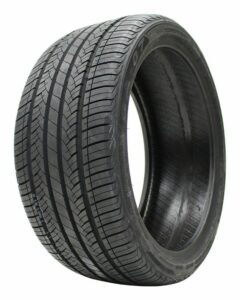
Accessing Free Laptops and Discount Tech for College: Programs, Grants, and Savings Tips
College’s high costs make budgeting for tech tough for students. However, free or discounted laptops and devices are attainable through programs, grants, nonprofits, and student deals. This guide explores options to access affordable college tech.
Related Topics (Sponsored Ads):

Research Laptop Programs Offered by Your College
Many colleges and universities now provide incoming students with free laptops or other devices. Contact your college’s admissions and financial aid offices to ask about complimentary computer programs. Schools like Full Sail University, Chatham University, and Moravian College offer free laptops, tablets, or MacBooks to first-year students and transfer students as part of enrollment. If your college lacks a universal free tech program, individual departments may still have device grants for students in specific majors, like engineering or computer science. Refrain from assuming you won’t qualify – always inquire about potential laptop offers during admissions.
Utilize Laptop and Technology Grants from Nonprofits
National and local nonprofit organizations are excellent resources for laptop and technology grants for financially disadvantaged students. Computers with Causes, PCs for People, and InterConnection provide low-cost and free refurbished computers to needy students. Additional nonprofits like Laptops 4 Learning and The On It Foundation specifically focus on providing free laptops and required fundraising support. To qualify, nonprofits typically require proof of enrollment and income verification. Reach out to groups servicing your city or college town area to learn about grant applications. With many nonprofits experiencing high demand, apply early and prepare for waitlists.
Seek Out Laptops at Your Local Public Library
Before purchasing expensive equipment, check your local public library. Many offer free laptop loans for students and low-income residents. For example, students with a library card can borrow a Chromebook for up to three weeks at San Francisco Public Library locations. At the Las Vegas-Clark County Library District, students can check out laptops for up to six months. Libraries provide an excellent free interim solution while awaiting device grants or financial aid. Be aware of borrowing limitations, waitlists, late return fees, and device care responsibilities. Libraries grant technology access to those lacking resources, so treat borrowed equipment respectfully. When exploring loans, also ask about free desktop computer stations available at the library for schoolwork.
Apply for Laptop Scholarships
Numerous scholarships help high school and college students purchase laptops, including technology-focused awards. The Dell Scholars Program awards $20,000 scholarships and free laptops to students demonstrating financial need who will attend college. Best Buy’s @15 Program also awards over 1,000 scholarships annually, valued at $1,500 for a computer. Research and apply early, as laptop scholarship programs are competitive. If your college doesn’t provide a computer, emphasize your financial need and lack of technology access within scholarship essays and applications. Local community, religious, ethnic, and business organizations may offer smaller grants and scholarships for laptops, so don’t limit searches to nationwide programs. Ask school counselors about available local and regional laptop awards.
Consider Refurbished and Used Devices
Purchasing refurbished and used laptops can be an affordable option. Dell, Apple, and other manufacturers sell refurbished laptops with warranties at discounted prices. Nonprofit organizations like PCs for People, InterConnection, and the National Cristina Foundation offer affordable refurbished devices and grants. Student laptop resellers like Notebooks for Students provide used, graded laptops starting at around $200. Check university surplus property offices as well for discounted used computers. When buying refurbished or used, inspect thoroughly and ask about included warranties, as repair costs quickly increase. While these options work for basic needs, newer laptops run the latest software best if your major requires robust programs. When pursuing discounted used devices, weigh options carefully based on your budget and computing needs.
Research Student and Educational Discounts
Computer and tech manufacturers offer exclusive student and educator discounts, making new laptops more affordable. Apple offers discounted pricing to students on MacBooks, iPads, and more. Dell provides over $200 in savings on laptops like the XPS series and software offers. Microsoft also offers up to 10% off laptops and tablets, plus free Office 365. Lenovo, HP, Acer, and Asus provide student deals as well. Search “[brand] student discounts” to access discounts and have your school ID and enrollment verification ready. Combine brand savings with ongoing student coupons and cash back through Upromise, Rakuten, or Drop. Carefully compare discounted pricing on models that fit your computing needs. While still an investment, student deals stretch tech budgets further.
Conclusion
Numerous solutions exist for students seeking free or low-cost laptops, from college-based computer programs to nonprofit grants. Begin your search by thoroughly researching options for device borrowing or aid through your school and libraries. Look into national and local nonprofit organizations offering tech grants and affordable refurbished equipment. For direct laptop aid, explore specialized scholarship programs and local community awards. If purchasing, utilize educational discounts and budget-stretching tips. With creativity and diligence, college students can find ways to access essential technology for learning, even facing financial constraints. The investment of time in researching will be worthwhile.
Related Topics (Sponsored Ads):
Discover More






